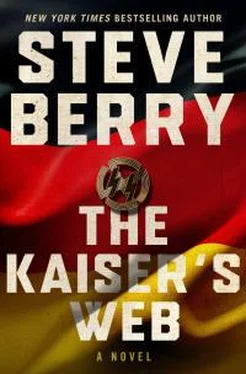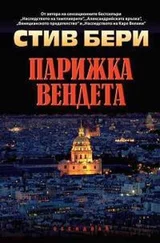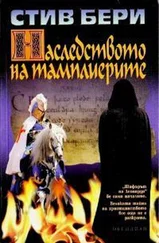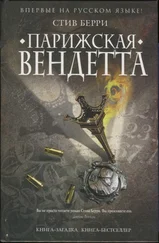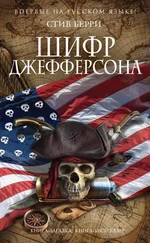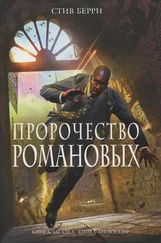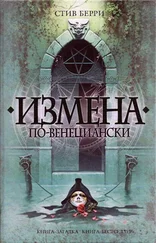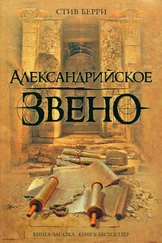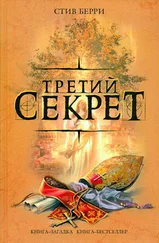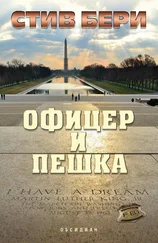“Cotton, tell me why it was necessary I piss off a multitude of people at NATO to make this flight happen,” Danny said through the hiss in his ears.
“That parentage we thought was there is not. Schüb is the father, not the other man.” He had to watch his words even though they were on a scrambled channel. There were two Austrian flight officers in the compartment, along with Schüb, and though the rotors were loud and the officers wore no headsets, they could hear him as he spoke into the microphone around his neck.
“That’s great, but that other aspect, the one you reported earlier, is still there?”
“It is.”
“Events are happening in Germany,” Danny said. “There was an attempt on Eisenhuth’s life this evening at Hildesheim cathedral. Tell Herr Schüb that his son, Jan, is an excellent shot.”
“Is she all right?”
“Perfectly. But she’s presently on the way to Pohl’s castle.”
That shocked him. “Why?”
“She wants to confront him.”
“That’s foolishness.”
“In more ways than one. Just get there. Cassiopeia is with her. They are probably about half an hour from arriving.”
“We’re forty-five minutes away. This is getting way out of hand.”
“Tell me about it. But you’re the man on the scene, so handle it.”
“I’m retired.”
“Aren’t we all.”
And the line went dead.
Pohl’s gaze focused on the door as Kurt Eisenhuth entered the study. He immediately noticed a strange fire in the man’s eyes. Unusual for someone who lacked any semblance of a backbone.
“You did it, didn’t you?” Kurt said, his voice raised. “You are the one who tried to kill Marie.”
He saw no reason to deny anything. “Unfortunately, the attempt failed.”
Kurt’s right hand came out of his coat pocket holding a small Sig Sauer automatic pistol.
The short barrel was leveled straight at him.
“You intend to shoot me?” Pohl asked, with no fear.
“I should do this nation a favor and end you here and now.”
Two hours ago he’d waved off an offer for added security. The last thing he needed was inquisitive guards watching his every move. So he’d politely refused, assuring the justice ministry that he would shore up his own private security. Of course, there was no real need to do that, though now, staring at the gun pointed at him, he wished he’d at least added one extra man to check on visitors. But something told him the benign fool standing across the room was no threat. More like a big dog who bolted from the stoop, growling, teeth bared, yet always stopped at the curb, never venturing into the street, where the possibility of failure became all too real.
“Then, by all means,” he said, “pull the trigger and reelect your inept wife leader of Germany.”
“I never agreed for her to be harmed.”
“No, you simply allowed me to ruin her. Provided, of course, that you were not implicated.” He was taunting the older man, but he thought he knew him well enough to understand his weaknesses. “When are you going to accept reality? I am all that we have left. Kill me, and it dies a second time.”
The gun hand started to shake. He nearly smiled.
He’d struck the precise nerve.
“Sometimes casualties are needed,” he said.
“Not her,” Kurt declared.
He sensed it almost immediately. Years of reading the faces of friends and foes had taught him the signals. Less a look than a feel. Even those schooled in concealing their emotions betrayed the signs. The flutter of an eyelid. A gentle crease in a brow. The quiver of lips. The signs varied from person to person, but there was always at least one.
Like here.
Which said that Kurt Eisenhuth knew more than he was saying.
He cursed himself for underestimating this man. He should have realized much sooner but, after all, he’d never taken this fool all that seriously.
He stepped to where Kurt stood. The Sig Sauer stayed level. He stopped with its barrel centimeters from his chest. “You know, don’t you?”
The man’s eyes glazed over with a shine like marzipan gave to pastry, and the growing mist answered his inquiry.
Kurt nodded.
“That’s good,” he said. “I’m glad.”
He reached out and gripped the gun, ever so gently releasing it from Kurt’s grip.
Tears pronounced defeat.
He slipped the gun into his back pocket. “Come with me, Kurt. There is something, I believe, you now need to see.”
He led the way down the winding staircase into the underground rooms. Kurt followed. At the bottom he flicked on the light switch.
“My God,” his guest whispered, catching sight of the initial items in the collection.
A colorful Sturmbannfahne stood to the right. The banner was a red ground, with a large black swastika set on a white circular field. In the upper right corner, embroidered in silver thread, was the number 14, representing the 14th SS Signals Battalion of Vienna.
He noticed Kurt’s interest.
“I acquired it from an Austrian veteran who possessed the good sense to carefully pack the cloth away.”
“It is immaculate, as if it were sewn yesterday.”
“Which is why it is displayed here, at the beginning. I have many Sturmbannfahne, but few in such exceptional condition.” He motioned ahead. “Come, I have more to show you.”
He led his guest past the array of artifacts. Uniforms, helmets, hats, insignia, weapons, posters, badges, medals, toys, porcelain, glassware. All from the so-called Thousand-Year Reich. There were also a few exhibits. One caught Kurt’s attention, and he halted to study the clothed table and white painted chairs.
“It is from Berchtesgaden. An original from one of the lodges that housed the generals and party officials when Hitler was in residence. The terraces were filled with these tables. One of the locals managed to secrete it away before the Americans burned everything.”
On top of the white cloth rested a place setting for four that included crystal goblets, sterling silverware bearing a tiny swastika, and cups and bowls, all of white china with a delicate rose design.
“Can’t you just imagine the generals sitting around, enjoying soup and wine, perhaps a plate of pastries, some bread, discussing the war, waiting to be called before their Führer.”
He watched as Kurt continued to stare at the table and chairs.
“I never realized the depth of your devotion,” Kurt finally said.
He laughed. “Devotion? I have none.”
“But all this. Why have these things, if not for devotion?”
“My dear Kurt. People collect for a variety of reasons. Some for the value of the items. Others for personal obsession. Some merely for the joy it brings. None of those apply to me. I actually abhor the Third Reich. It is a lesson in failure. One I do not plan to repeat.”
He stepped to a pedestal that displayed a camouflage drill tunic. The pea-patterned cloth was decked out in the shoulder straps of an Obersturmführer. More awards were pinned to the breast pocket above a ribbon bar. A black-and-silver Knight’s Cross hung around the neck. “The man who would have worn this uniform would have looked quite strange. Look at it. Camouflage fatigues adorned with ribbons and medals. Only an arrogant Nazi would be proud of such a display. They were truly odd people. We have no room for them in the new Germany.”
“Yet you collect their symbols.”
“To remind me of inadequacy. That’s why I collected all this.” He motioned ahead. “We have farther to go.”
Down the tiled corridor he walked, Kurt following behind. He turned his head to see his guest stop and gaze at more of the displays, fingering the scratchy cloth of the uniforms, gently brushing the waxed bill of the caps, carefully caressing the porcelain, clearly in awe.
Читать дальше
